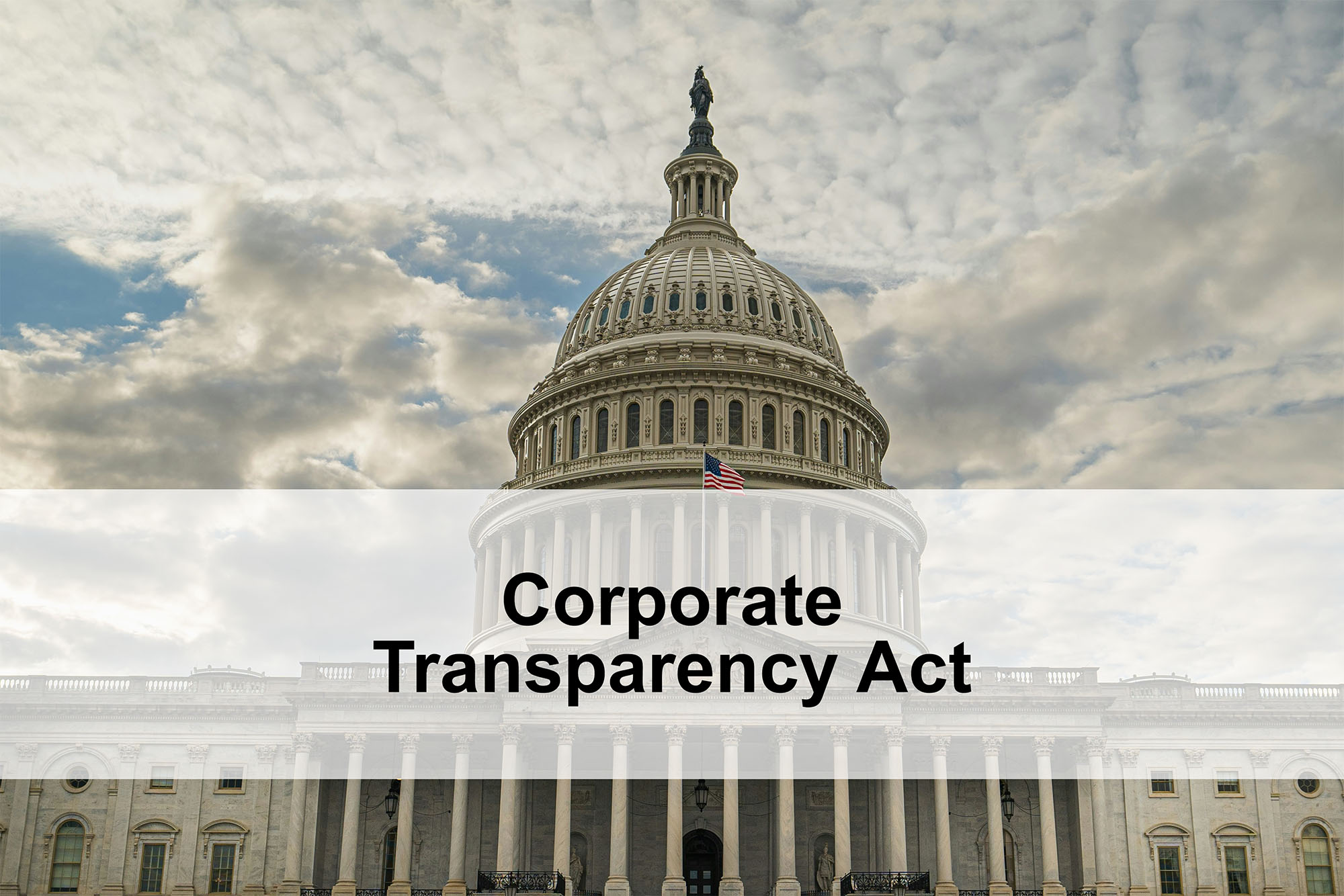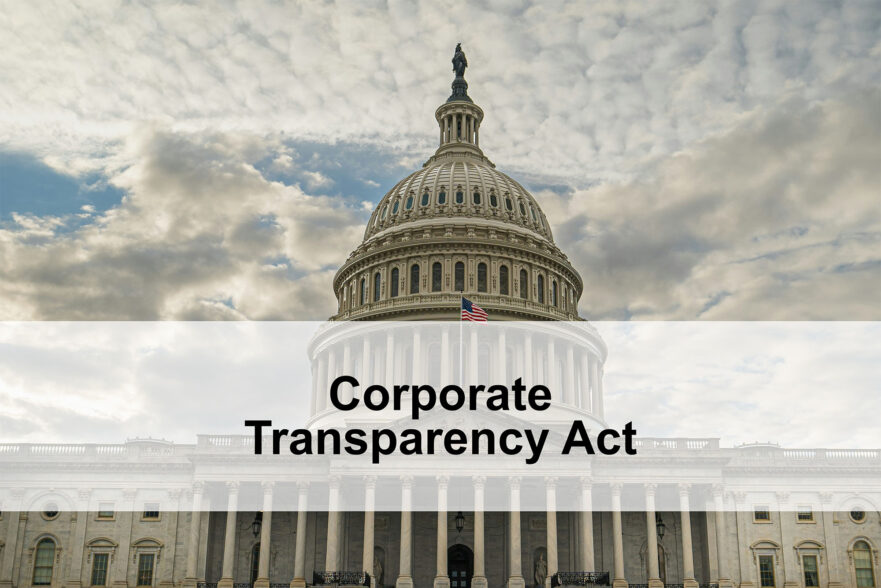
**UPDATE**
Original Article:
WHAT IS THE CORPORATE TRANSPARENCY ACT?
In 2021, Congress enacted the Corporate Transparency Act (CTA) to combat certain financial crimes, such as money laundering. After many revisions and updates, the rules went into effect in 2024.
The CTA requires certain businesses to report ownership and other information to the Department of the Treasury’s Financial Crimes Enforcement Network (FinCEN) for inclusion in FinCEN’s database. Beginning in 2024, many small businesses are now required to report this information, referred to as “Beneficial Ownership Information” (BOI), to FinCEN.
If you form an entity after January 1, 2024, or you own an entity formed prior to that date, you are required to comply with the CTA. Coolidge Wall is available to answer questions that you may have regarding your CTA responsibilities.
New Responsibilities:
As a result of the CTA and its reporting requirements, business owners and managers must actively track, manage, and report BOI and other governance information of an entity. BOI includes certain personal information of the business owners and others who are controlling the business. Reporting companies must also monitor this information for changes so that existing CTA reports may be updated as such changes occur.
Who Must File:
All domestic and foreign “reporting companies” that are not exempt from the CTA or its reporting requirements are required to file BOI reports with FinCEN. A “Reporting Company” is any entity such as a corporation, limited liability company, limited partnership, or other forms of entities which are required to file or register with a governmental authority to be formed.
Exemptions:
A Reporting Company that qualifies for an exemption from the CTA is not required to file a BOI report. The CTA does offer multiple exemptions, however, many of these exemptions apply only to types of entities which already report ownership information to a governmental authority, such as banks and financial institutions. A significant exemption from reporting applies to “large operating companies” which meet certain criteria, such as number of employees and annual gross receipts. The applicability of available exemptions, including the “large operating company” exemption, requires a factual and legal analysis of many factors and can be quite complex.
Beneficial Owners:
BOI information required to be reported is certain information of the Reporting Company’s “beneficial owners”. The “Beneficial Owners” of a Reporting Company are persons who: (a) own or control at least 25% of the Reporting Company; or (b) have substantial control over a Reporting Company. “Substantial Control” typically means individuals who have decision-making authority over the business of the Reporting Company, whether through a position or title, such as director, manager, or certain officers of the Reporting Company, or who otherwise have the ability to exert control. The determination of those persons qualifying as Beneficial Owners, including whether such persons exercise Substantial Control, can also be complex. The analysis may require a review of ownership interests of the entity, including rights to acquire ownership interests, a calculation of ownership percentages based on the business structure, and evaluating the governance structure of and roles of authority within the Reporting Company.
General Requirements:
- Newly Formed Entities. With some exceptions, all entities formed after January 1, 2024 must file a BOI Report within ninety (90) days of entity formation. This filing deadline for new entities will shorten to thirty (30) days beginning January 1, 2025. Coolidge is available to assist with forming new entities and will assist you with your compliance with the CTA requirements.
- Entities Existing Before January 1, 2024. Entities formed before January 1, 2024 (that are not exempt) must file the BOI report by December 31, 2024. Although certain exemptions are available, most small business entities are required to file. Failure to file could result in civil penalties of up to $500 for each day the report is not filed, and criminal penalties of up to $10,000 and/or imprisonment for up to two years for willfully failing to file. Owners and senior officers may be held personally liable for the entity’s failure to file.
- Information Required. Typically, a BOI Report includes general information (such as company name, address, and tax identification number), and certain personal information about each Beneficial Owner (name, address, date of birth, social security number, and form of identification). An analysis of the CTA requirements should be performed to ensure that the entity reports the correct Beneficial Owners.
- Certain Exemptions. The CTA rules provide exemptions from filing for entities meeting certain criteria or for certain entity types (examples include certain governmental entities and financial institutions). An analysis of the CTA exemptions should be performed to determine the availability of a particular exemption.
- Changes. The BOI report is not an annual requirement. Once an entity has filed its BOI report, however, it must also report changes to its BOI and other entity information within thirty (30) days of the change. If an exempt entity no longer qualifies for an exemption, it also must file a BOI report within thirty (30) days of the change causing its loss of qualification.
If you would like more information about the CTA and its requirements, or assistance filing BOI reports or reviewing exemptions, please contact an attorney at Coolidge Wall, or Kristin Finch, Chairperson of the Corporate and Business Law Department at .


